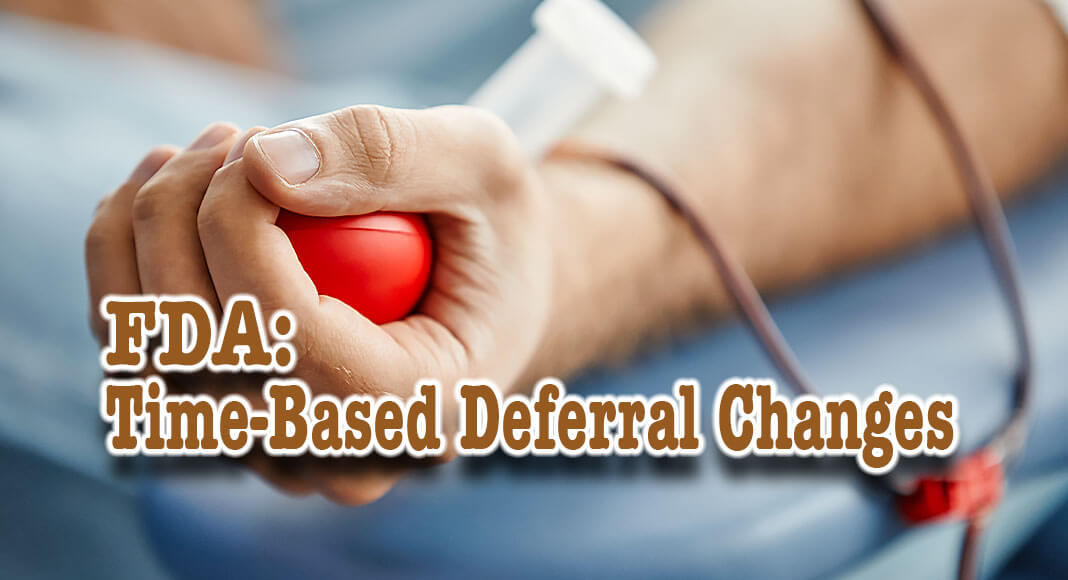
Mega Doctor News
The U.S. Food and Drug Administration today announced it is proposing a change from time-based deferrals to assessing blood donor eligibility using gender-inclusive, individual risk-based questions to reduce the risk of transfusion-transmitted HIV. This proposal is in line with policies in place in countries like the United Kingdom and Canada.
These draft recommendations are based on the FDA’s careful review of available information, including data from other countries with similar HIV epidemiology that have instituted this approach, as well as ongoing surveillance of the U.S. blood supply. Based on the available data, the agency believes the implementation of the proposed individual risk-based questions will not compromise the safety or availability of the blood supply.
“Whether it’s for someone involved in a car accident, or for an individual with a life-threatening illness, blood donations save lives every day,” said FDA Commissioner Robert M. Califf, M.D. “Maintaining a safe and adequate supply of blood and blood products in the U.S. is paramount for the FDA, and this proposal for an individual risk assessment, regardless of gender or sexual orientation, will enable us to continue using the best science to do so.”
Under the new proposed guidance:
- The time-based deferrals for men who have sex with men (MSM) and women who have sex with MSM would be eliminated.
- The current donor history questionnaire would be revised to ask all prospective donors about new or multiple sexual partners in the past three months.
- Prospective donors who report having a new sexual partner, or more than one sexual partner in the past three months, would then be asked about a history of anal sex in the past three months.
- All prospective donors who report having a new sexual partner or more than one sexual partner and had anal sex in the past three months would be deferred from donation.
- Under this proposal, a prospective donor who does not report having new or multiple sexual partners, and anal sex in the past three months, may be eligible to donate, provided all other eligibility criteria are met.
Other considerations in the guidance include:
- No change in the donor deferral time periods for other HIV risk factors, including for individuals who have exchanged sex for money or drugs or have a history of non-prescription injection drug use.
- Any individual who has ever had a positive test for HIV or who has taken any medication to treat HIV infection would continue to be deferred permanently.
- Blood establishments would still be required to test all blood donations for evidence of certain transfusion-transmitted infections, including HIV, hepatitis B and hepatitis C.
Proposed guidance related to pre-exposure prophylaxis (PrEP) or post-exposure prophylaxis (PEP):
- Those taking oral medications to prevent HIV infection such as PrEP or PEP would be deferred for three months from their most recent dose.
- Those taking injectable PrEP to prevent HIV infection would be deferred for two years from their most recent injection.
- Some blood establishments currently have deferral policies related to the use of medications to prevent HIV infections.
- The available data demonstrate that the use of PrEP and PEP may delay detection of HIV by licensed screening tests for blood donations, potentially resulting in false negative results.
The agency recognizes that, while these draft recommendations, when finalized, will potentially increase the number of individuals eligible to donate blood, some individuals will still be deferred from donating blood. However, this does not mean that individuals taking PrEP should stop taking these medications to donate blood. The FDA will continue to track the latest data relevant to PrEP and blood donation.
“Our approach to this work has always been, and will continue to be, based on the best available science and data. Over the years, this data-driven process has enabled us to revise our policies thereby increasing those eligible to donate blood while maintaining appropriate safeguards to protect recipients,” said Peter Marks, M.D., Ph.D., director of the FDA’s Center for Biologics Evaluation and Research. “We will continue to follow the best available scientific evidence to maintain an adequate supply of blood and minimize the risk of transmitting infectious diseases and are committed to finalizing this draft guidance as quickly as possible.”
To inform these draft recommendations, the FDA carefully reviewed numerous data sources, including data from the United Kingdom and Canada, countries with similar HIV epidemiology that have implemented this gender-inclusive, individual risk-based approach for assessing donor eligibility, surveillance information obtained from the Transfusion Transmissible Infections Monitoring System, and the performance characteristics of nucleic acid testing for HIV. Additionally, the agency funded the Assessing Donor Variability And New Concepts in Eligibility (ADVANCE) study. This study examined several HIV risk factors, such as anal sex, rates of HIV infection and rates of PrEP and PEP use among MSM study participants.
As part of the FDA’s established process, today’s proposal will be open for public comment for 60 days. The agency will then review and consider all comments before finalizing this guidance, which would then be implemented by the nation’s blood collection establishments through an updated donor history questionnaire.
Related Information
- Keeping Blood Transfusions Safe: FDA’s Multi-layered Protections for Donated Blood
- Blood & Blood Products
Information Source: FDA








